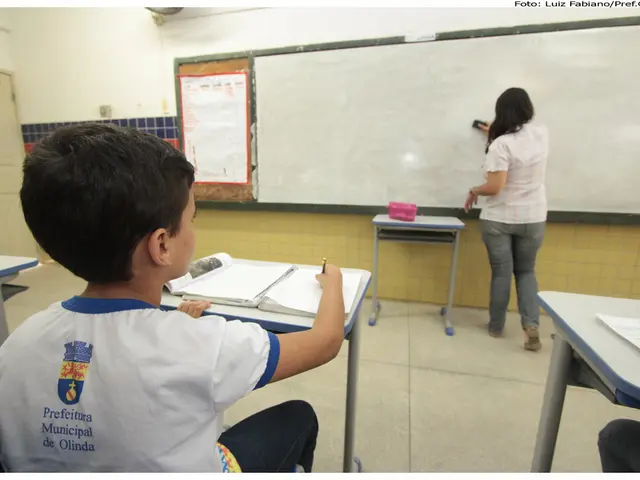Connection Between ADHD Symptoms and Rejection Sensitivity Among University Students
A recent study sheds light on the complex relationship between Attention Deficit Hyperactivity Disorder (ADHD) symptoms and rejection sensitivity (RS) in college students. The research suggests that positive psychological constructs, such as well-being, creative/executive efficiency, self-regulation, resilience, and savoring capacity, play a crucial role in moderating and buffering this relationship.
Individuals with ADHD often face frequent social challenges and negative feedback, which can lead to heightened RS. This condition, characterized by intense emotional distress and overwhelming reactions to perceived rejection or criticism, can result in social anxiety, low self-esteem, and emotional hyperreactivity. College students with higher ADHD symptom levels exhibit significantly more rejection sensitivity.
However, the study found that positive psychological constructs can help mitigate this impact. Well-being and resilience act as psychological resources that can reduce the negative impact of RS. Resilience helps individuals bounce back from social setbacks and criticism, preventing spirals into intense self-doubt or shame commonly seen in ADHD individuals with RSD. Enhancing well-being promotes mental health stability and better coping mechanisms.
Self-regulation and executive efficiency, often impaired in ADHD, can also help students manage emotional reactivity and impulsive responses to perceived rejection. Better executive functioning supports thoughtful assessment of social cues rather than automatic, negative interpretations.
Creative efficiency and savoring capacity, according to the broaden-and-build theory of positive emotions, can broaden an individual's momentary thought-action repertoire, spurring creative problem-solving, exploration, and social bonding. Savoring positive experiences helps build psychological resources, acting as buffers against stress and rejection sensitivity. Engaging in creative activities or savoring positive social interactions can therefore improve emotional resilience and reduce susceptibility to rejection-related distress.
In essence, these positive psychological constructs broaden cognitive and emotional flexibility, allowing college students with ADHD to better manage the intense emotions associated with RSD and to build enduring social and psychological resources. This can reduce the disabling impact of RSD on their academic, social, and personal lives, improving overall functioning and quality of life.
The study, while providing valuable insights, also has limitations, such as a cross-sectional design, reliance on self-report measures, unequal gender distribution, lack of information on participants' academic majors, and a single-country sample. Despite these limitations, the findings highlight the importance of understanding and supporting college students with ADHD symptoms, particularly in developing interventions to enhance savoring capacity and overall mental well-being.
Future research could explore the efficacy of interventions targeting savoring capacity and other positive psychological constructs in reducing RS among college students with ADHD symptoms. The study's findings extend previous research by providing a more comprehensive understanding of the factors influencing the relationship between ADHD symptoms and RS in a college student population.
- College students with ADHD may experience anxiety due to frequent social challenges and rejection sensitivity, leading to emotional distress, low self-esteem, and emotional hyperreactivity.
- The study revealed that positive psychological constructs, such as well-being, resilience, self-regulation, and creative/executive efficiency, can mitigate the impact of rejection sensitivity in students with ADHD.
- Resilience helps individuals with ADHD bounce back from social setbacks, preventing spirals into self-doubt or shame commonly seen in ADHD individuals with rejection sensitivity.
- Enhancing self-regulation and executive efficiency in students with ADHD can help them manage emotional reactivity and impulsive responses to perceived rejection.
- Creative efficiency and savoring capacity can broaden an individual's momentary thought-action repertoire, promoting creative problem-solving, exploration, and social bonding, thereby improving emotional resilience and reducing susceptibility to rejection-related distress.
- Future research should explore the efficacy of interventions that target savoring capacity and other positive psychological constructs in reducing rejection sensitivity among college students with ADHD symptoms.
- The findings of this study contribute to the growing body of research on mental health, education-and-self-development, and health-and-wellness, offering insights into the complex relationship between ADHD symptoms and rejection sensitivity in college students.




